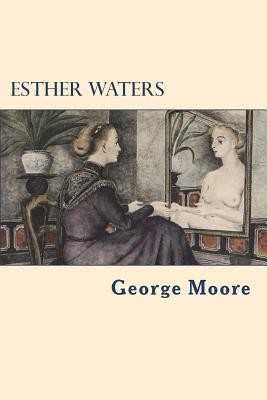
- We will send in 10–14 business days.
- Author: George Moore
- Publisher: CreateSpace Independent Publishing Platform
- Year: 2018
- Pages: 382
- ISBN-10: 1722106395
- ISBN-13: 9781722106393
- Format: 15.2 x 22.9 x 2 cm, minkšti viršeliai
- Language: English
- SAVE -10% with code: EXTRA
Reviews
Description
George Moore's Esther Waters (1894), which was published in the period of agitated debates over the labour movement, women's movement, changing gender roles, new custody rights, and single motherhood, can be read as a New Woman novel, although its protagonist lacks some of the typical New Woman's features. Esther is not an independent, emancipated middle- or upper-class woman, but a victimised lower-class heroine and a quintessential mother who decides to raise her illegitimate son, and does so, struggling all her life against hardship and poverty. The novel describes realistically lower-class poverty, seduction, abandonment, new womanhood and single parenthood in late-Victorian England.
- Author: George Moore
- Publisher: CreateSpace Independent Publishing Platform
- Year: 2018
- Pages: 382
- ISBN-10: 1722106395
- ISBN-13: 9781722106393
- Format: 15.2 x 22.9 x 2 cm, minkšti viršeliai
- Language: English English
George Moore's Esther Waters (1894), which was published in the period of agitated debates over the labour movement, women's movement, changing gender roles, new custody rights, and single motherhood, can be read as a New Woman novel, although its protagonist lacks some of the typical New Woman's features. Esther is not an independent, emancipated middle- or upper-class woman, but a victimised lower-class heroine and a quintessential mother who decides to raise her illegitimate son, and does so, struggling all her life against hardship and poverty. The novel describes realistically lower-class poverty, seduction, abandonment, new womanhood and single parenthood in late-Victorian England.


Reviews